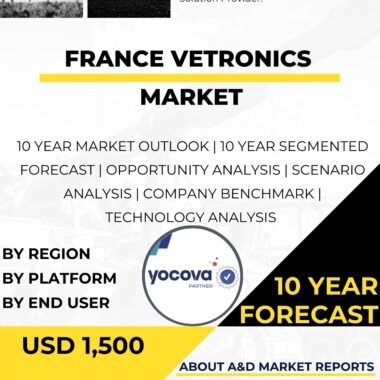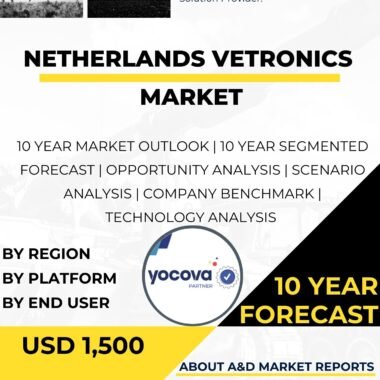Description
Singapore Vetronics Market has experienced notable growth in recent years, fueled by the country’s emphasis on strengthening its defense capabilities, modernizing its military vehicles, and integrating advanced technologies to maintain an edge in modern warfare. Vetronics—short for vehicle electronics—refers to the integration of electronics and computer systems in military vehicles to enhance their mobility, survivability, and operational effectiveness.
Singapore Vetronics Market Key Drivers of Market Growth
Singapore’s strong commitment to defense modernization has been a primary growth driver. As a small nation with limited land area but significant strategic interests, Singapore recognizes the need for a technologically advanced and agile defense force. Incorporating vetronics into military vehicles ensures superior situational awareness, improved command and control, and enhanced battlefield effectiveness.
The country’s proactive stance on adopting technologies such as artificial intelligence (AI), robotics, and autonomous systems has also bolstered the vetronics market. This aligns with Singapore’s broader vision of building a “Smart Defense Force,” leveraging innovation to maintain operational superiority.
Singapore Vetronics Market Growth of Domestic Defense Industry
Singapore’s growing defense industry, backed by strong R&D and manufacturing capabilities, supports vetronics development. Partnerships with international defense companies further enable technology transfer and access to advanced vetronics systems.
Applications of Vetronics in Singapore
Vetronics systems are extensively used to enhance the performance of armored vehicles such as tanks, infantry fighting vehicles, and armored personnel carriers. These integrations improve survivability, firepower, and coordination through advanced sensors, communication suites, and electronic warfare components.
Wheeled platforms used for reconnaissance, transport, and logistics benefit from vetronics integration. These systems enhance vehicle mobility, adaptability, and communication in complex terrains and urban settings.
Vetronics also play a vital role in military command and control centers, facilitating real-time communication and data exchange between field vehicles and headquarters. This connectivity supports faster decision-making and efficient mission execution.
Unmanned Ground Vehicles (UGVs)
Singapore’s increasing use of UGVs for surveillance, reconnaissance, and logistics highlights another key application. Vetronics enable these unmanned platforms to operate autonomously or remotely with high reliability and precision.
Challenges Facing the Market
Integrating advanced vetronics into diverse military vehicle fleets poses challenges related to compatibility, system testing, and customization. Ensuring seamless interoperability with legacy systems remains a complex task.
Cybersecurity Concerns
With growing digital integration, cybersecurity becomes a major concern. Protecting communication networks and data from cyber threats is crucial to maintaining operational integrity and safeguarding sensitive military information.
Future Outlook
The future of Singapore’s vetronics market appears promising. Continued defense investments, collaborations with global defense companies, and advancements in AI, automation, and sensor technologies will drive further growth. Next-generation vetronics systems are expected to deliver enhanced situational awareness, faster data processing, and improved autonomous capabilities.
Conclusion
In summary, Singapore’s vetronics market is on an upward trajectory, supported by defense modernization, technological innovation, and strong industrial collaboration. While challenges related to integration and cybersecurity persist, the nation’s commitment to advancing defense technologies ensures a robust and evolving market landscape.




